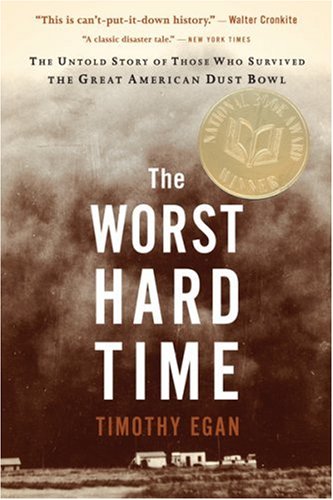Fantastically Bad Cinema: From Dusk Till Dawn
Remarkable Literary Characters
5 Questions About: Ken Bruen
Great Openings
5 Questions About: Hannah Tinti
7 Obscure Serial Killer Flicks Worth a Watch
30 Years Later: Halloween Revisted
Essay: Blame the #$&@ Media
10 Reasons Why Sarah Palin Will Submarine McCain's...
Literary Criticism
Fantastically Bad Cinema
Essays
Under God's Right Arm
June 2006
July 2006
August 2006
September 2006
October 2006
November 2006
December 2006
January 2007
February 2007
March 2007
April 2007
May 2007
June 2007
July 2007
August 2007
September 2007
October 2007
November 2007
December 2007
January 2008
February 2008
March 2008
April 2008
May 2008
June 2008
July 2008
August 2008
September 2008
October 2008
November 2008
December 2008
January 2009
February 2009
March 2009
Alcoholic Poet
Baby Got Books
Beaman's World
BiblioAddict
Biblio Brat
Bill Crider's Pop Cultural Magazine
The Bleeding Tree
Blog Cabins: Movie Reviews
A Book Blogger's Diary
BookClover
Bookgasm
Bookgirl's Nightstand
Books I Done Read
Book Stack
The Book Trib
Cold Hard Football Facts
Creator of Circumstance
D-Movie Critic
The Dark Phantom Review
The Dark Sublime
Darque Reviews
Dave's Movie Reviews
Dane of War
David H. Schleicher
Devourer of Books
A Dribble of Ink
The Drunken Severed Head
Editorial Ass
Emerging Emma
Enter the Octopus
Fatally Yours
Flickhead
The Genre Files
The Gravel Pit
Gravetapping
Hello! Yoshi
HighTalk
Highway 62
The Horrors Of It All
In No Particular Order
It's A Blog Eat Blog World
Killer Kittens From Beyond the Grave
The Lair of the Evil DM
Loose Leafs From a Commonplace
Lost in the Frame
Little Black Duck
Madam Miaow Says
McSweeney's
Metaxucafe
Mike Snider on Poetry
The Millions
Moon in the Gutter
New Movie Cynics Reviews
Naked Without Books
A Newbie's Guide to Publishing
New & Improved Ed Gorman
9 to 5 Poet
No Smoking in the Skull Cave
Orpheus Sings the Guitar Electric
Polly Frost's Blog
Pop Sensation
Raincoaster
R.A. Salvatore
Reading is My Superpower
Richard Gibson
SciFi Chick
She Is Too Fond Of Books
The Short Review
Small Crimes
So Many Books
The Soulless Machine Review
Sunset Gun
That Shakesperherian Rag
Thorne's World
The Toasted Scrimitar
This Distracted Globe
Tomb It May Concern
2 Blowhards
Under God's Right Arm
A Variety of Words
The Vault of Horrr
Ward 6
When the Dead Walk the Earth
The World in the Satin Bag
Zoe's Fantasy
Zombo's Closet of Horror
Bookaholic Blogring
Power By Ringsurf
(Quick fire reviews of the books we’ve been reading. A “cracked-back” is what happens to the spine of a new book once you’ve thoroughly devoured it. Please feel free to add your own list of recommendations in our comments section.)
This collection of short stories by Mathias B. Freese gets points for the way the writer insightfully glares into the lives of the characters – a group of troubled (and sometimes mentally ill) people. Freese uses stark and penetrating language to accomplish that task. But the real question is if this collection can really be considered short stories. I’d argue not. There’s nary a plot to be found in the collection – as each of the pieces focuses on character building. These are character sketches – not stories. Most, in fact, are internal monologues. Yet some of the sketches work well. “I’ll Make It, I Think” features the powerful voice of a handicapped boy trapped in his deformed body. “Little Errands” is an amusing take on an anal retentive man obsessed with mailing letters. Yet overall, the collection feels too internal – as if the book is trapped inside a room without any windows. Too much of the action is thinking. There needs to be more external action – interaction with other characters, movement, and fluidity; more setting, description and dialogue. If you’re a fan of character – and bizarre, damaged ones then you’ll want to get a copy of “Down to a
Grade: C
How on Earth did the 13 Colonies ever win the Revolutionary War against the
Grade: B+
The Worst Hard Time: The Untold Story of Those Who Survived The Great American Dust Bowl
What was the worst environmental disaster of the 20th century? Would you believe the over-farming of the southern
Grade: A-
Labels: book review, Cracked-Back
 StumbleUpon |
StumbleUpon |
 del.icio.us |
del.icio.us |
 Technorati |
Technorati |
 Bybee said...
Bybee said...

This work is licensed under a Creative Commons Attribution-No Derivative Works 3.0 License.
The Template is generated via PsycHo and is Licensed.







